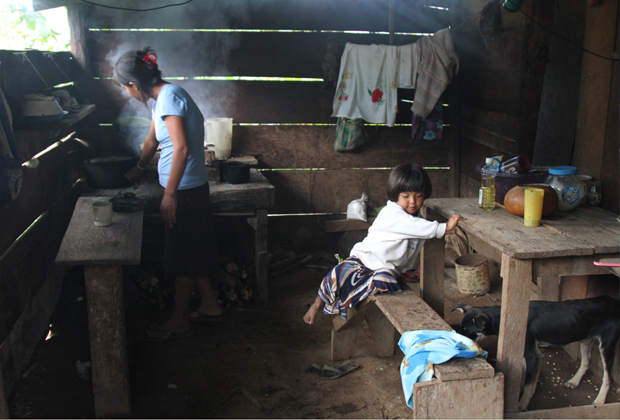Ambassador Mary Beth Jenssen on Green Mountain Coffee Roasters’ Sustainable Supply Chain.
Follow Mary Beth on Twitter: @jenssenvt
I have a confession to make: I left a job at a non-profit organisation making an incredible impact on my local community to join a rapidly growing and rather profitable corporation. For many months after changing jobs, I felt an immense feeling of guilt. I was meant to participate in and drive real, lasting change in my community and here I was, heading to the for-profit world. What I did not fully understand then was that investing in a corporation's continued profitability should also include significant investments in strengthening communities around the world.
In 2011, I joined the Supply Chain Outreach team in the sustainability department at Green Mountain Coffee Roasters, Inc. (GMCR). In this role, I have the privilege of participating in coffee supply chain outreach and grant-making efforts, focused on improving the lives of farmers, workers and families within our own supply chain through partnerships with international organisations.
[[[image-0 native]]]
In 2007, GMCR commissioned a study that found that 67% of coffee growers interviewed in Nicaragua, Guatemala and Mexico faced extreme scarcity of food for three to eight months of the year. This cyclical period of food insecurity is known as Los Meses Flacos, The Thin Months. To address this crisis, GMCR began funding NGO and cooperative-led initiatives working to address food insecurity. We funded projects that stemmed from the community, rather than dictating how we thought we could or should make a difference. From 2008-2012, we funded 47 food security projects though 20 NGO partners, impacting nearly 300,000 people in the very same communities where we source coffee. In our fiscal 2012 alone, we granted more than $5.3 million (U.S.) to support additional projects working to address food insecurity.
Many of us are already aware that one of the hurdles to making change is a lack of awareness of the issue. To address this, we supported the creation of a film. "After the Harvest: Fighting Hunger in the Coffeelands" brought the issue of Los Meses Flacos to the attention of the coffee industry and called them to act within coffee communities. We know that no one organisation can change the world. It takes great collaboration and humility to create the kind of change that is needed: partnerships with government, NGOs, other businesses and, most importantly, the coffee farmers themselves.
What I have learned over these past few years is that corporations have the power to impact their product supply chains both positively and negatively. With that power, profit, influence, and interdependence comes an opportunity and a responsibility to create positive change and impact around the globe. With our profit, GMCR chooses to invest in coffee farmers and their communities and firmly believes that long-term relationships with our producers also lead to a long-term supply of high-quality coffee. When we as a business are stable and sustainable, it is only then that we can work to enhance stability and sustainability in our supply chain.
I am proud to say that because of GMCR's commitment to sustainability, not only do I know where my coffee comes from, but I have met and know the names of many farmers whose lives have been changed as a result of these investments. These are farmers that may have otherwise sought out opportunities in other communities, abandoning coffee, in search of an improved life where they do not go hungry for months each year.
What can we, the future leaders of these global businesses, learn from this? We should learn from business today in order to improve sustainable business practices tomorrow. We can ensure that those at every level of the supply chain are able to thrive in their own community. We need to take ownership of ensuring that both the business and the supply chain remain stable and sustainable. We must be accountable for our actions at home and abroad.
Finally, as great of an impact as profit can have in the world when responsibly invested, we must always remain cognizant of and humbled by one fact: should those farming families no longer grow coffee - because they cannot earn enough money to survive, because the climate is no long suitable for coffee production, or because the next generation of coffee farmers, our generation, wants more opportunities than exist in their community today - there will be no profit for us to reinvest in our business and our supply chain.
It is our responsibility to act now, to speak up and start leading now.
